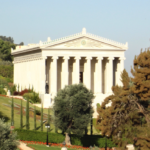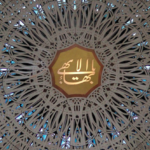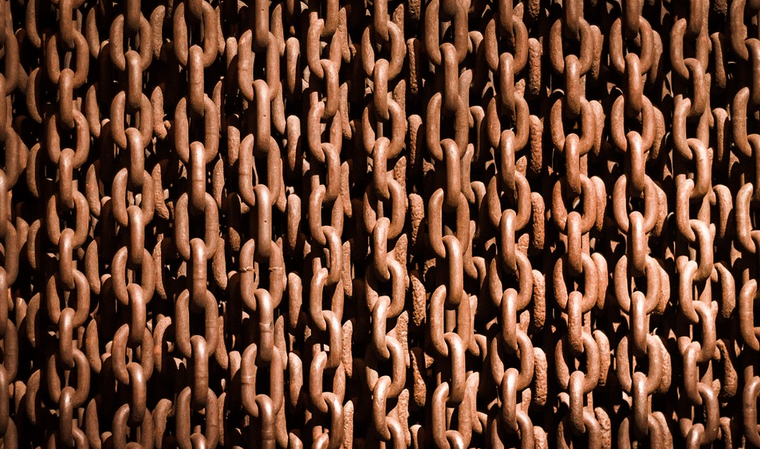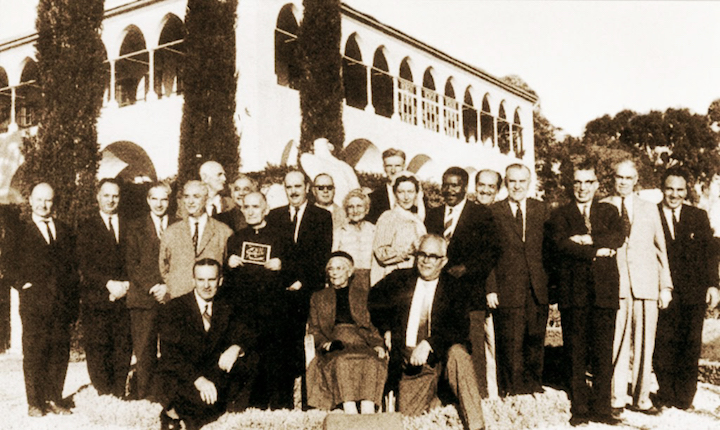
When Religious People do Bad Things
 In a world in which crimes are explicitly committed in the name of religion, a conversation about how best to respond to the problem is a necessity as difficult as it may be. Tragically this was how the 21st century begins. This article seeks to reflect on Bahá’u’lláh’s writings, and the Baha’i teachings more broadly, that bear on this question.
In a world in which crimes are explicitly committed in the name of religion, a conversation about how best to respond to the problem is a necessity as difficult as it may be. Tragically this was how the 21st century begins. This article seeks to reflect on Bahá’u’lláh’s writings, and the Baha’i teachings more broadly, that bear on this question.
Of course as a prophet or messenger of God, Bahá’u’lláh’s writings are grounded in a spiritual view of reality – and are concerned with religion. He foresees the decline of religion and the kind of turmoil that we see in the world today.
THE world is in travail, and its agitation waxeth day by day. Its face is turned towards waywardness and unbelief. Such shall be its plight, that to disclose it now would not be meet and seemly.[1]
THE vitality of men’s belief in God is dying out in every land; nothing short of His wholesome medicine can ever restore it.[2]
The predicted declines are amply seen in the course of the 20th and the 21st century.
Some, considering the problems of religion, believe the entire elimination of religion would benefit the world. Bahá’u’lláh’s view is the opposite – indeed that religion is essential to societal well-being.
Religion is verily the chief instrument for the establishment of order in the world and of tranquility amongst its peoples.[3]
In truth, religion is a radiant light and an impregnable stronghold for the protection and welfare of the peoples of the world, for the fear of God impelleth man to hold fast to that which is good, and shun all evil. Should the lamp of religion be obscured, chaos and confusion will ensue, and the lights of fairness and justice, of tranquility and peace cease to shine. Unto this will bear witness every man of true understanding.[3]
The tens of millions of lives sacrificed in the exaltation of secular movements such as nationalism and the secular conflicts in the course of the 20th century are ample evidence to support the truth of Bahá’u’lláh’s counsel. Abandoning religion will not solve humanity’s problems. It will only make things worse.
Yet, Bahá’u’lláh’s writings also deal with the “problem” of religion. Of course the primary reason human beings do “bad” things is because it is part of the human condition. We are capable of both great good and great evil. We don’t need religion as an excuse. Yet as Bahá’u’lláh states:
… is not the object of every Revelation to effect a transformation in the whole character of mankind, a transformation that shall manifest itself, both outwardly and inwardly, that shall affect both its inner life and external conditions? For if the character of mankind be not changed, the futility of God’s universal Manifestation would be apparent.[4]
It is therefore to some degree reasonable to expect more of people who claim to be religious. Bahá’u’lláh does so in respect of his followers.
My imprisonment doeth Me no harm, nor do the things that have befallen Me at the hands of My enemies. That which harmeth Me is the conduct of my loved ones who, though they bear My name, yet commit that which maketh My heart and My pen to lament.[5]
It is seems reasonable to conclude that the “harm” Bahá’u’lláh is concerned about here is not personal harm (his own life was always in harm’s way) – but rather harm to his mission to bring good to the world.
We see also that Bahá’u’lláh deals with the specific problems of religion. For example religious fanaticism.
In matters of religion every form of fanaticism, hatred, dissension and strife is strictly forbidden.[6]
He is concerned that religious education not result in fanaticism.
Schools must first train the children in the principles of religion, so that the Promise and the Threat recorded in the Books of God may prevent them from the things forbidden and adorn them with the mantle of the commandments; but this in such a measure that it may not injure the children by resulting in ignorant fanaticism and bigotry.[7]
Most of the passages above deal primarily with the life and conduct of the individual – it also requires consideration at other levels – the community, and institution. Some of these aspects have been considered in the respective linked articles.
There is also a sense in which a collective response is required from religious institutions to overcome the problems of religion. In 2002, the international governing body of the Baha’i Faith, the Universal House of Justice, wrote to other religious leaders about the issue.
Tragically, organized religion, whose very reason for being entails service to the cause of brotherhood and peace, behaves all too frequently as one of the most formidable obstacles in the path; to cite a particular painful fact, it has long lent its credibility to fanaticism. We feel a responsibility, as the governing council of one of the world religions, to urge earnest consideration of the challenge this poses for religious leadership.[8]
In that letter they draw a comparison to other fields – for example in the overcoming of racial divisions, the general decline of nationalism and the rise of international cooperation, and in the progress in the field of gender equality. While in none of these areas “are we there yet”, they all show an increasing manifestation of unity and coherence. This is the challenge religion as a whole faces – to overcome its disunity. To this effect they cite Bahá’u’lláh’s words:
There can be no doubt whatever that the peoples of the world, of whatever race or religion, derive their inspiration from one heavenly Source, and are the subjects of one God.[9]
They continue with this further observation:
What the above words do unequivocally urge is renunciation of all those claims to exclusivity or finality that, in winding their roots around the life of the spirit, have been the greatest single factor in suffocating impulses to unity and in promoting hatred and violence.[10]
Their conclusion is sobering:
With every day that passes, danger grows that the rising fires of religious prejudice will ignite a worldwide conflagration the consequences of which are unthinkable. Such a danger civil government, unaided, cannot overcome. Nor should we delude ourselves that appeals for mutual tolerance can alone hope to extinguish animosities that claim to possess Divine sanction. The crisis calls on religious leadership for a break with the past as decisive as those that opened the way for society to address equally corrosive prejudices of race, gender and nation.[11]
(This article is the 106th in a series of what I hope will be 200 articles in 200 days for the 200th anniversary of the birth of Bahá’u’lláh. The anniversary is being celebrated around the world on 21 and 22 October 2017, The articles are simply my personal reflections on Bahá’u’lláh’s life and work. Any errors or inadequacies in these articles are solely my responsibility.)






